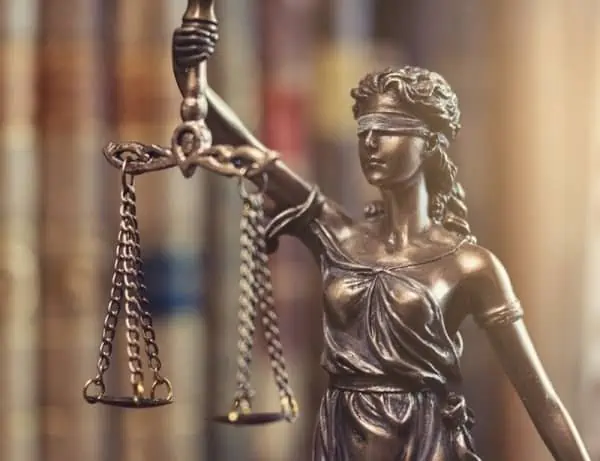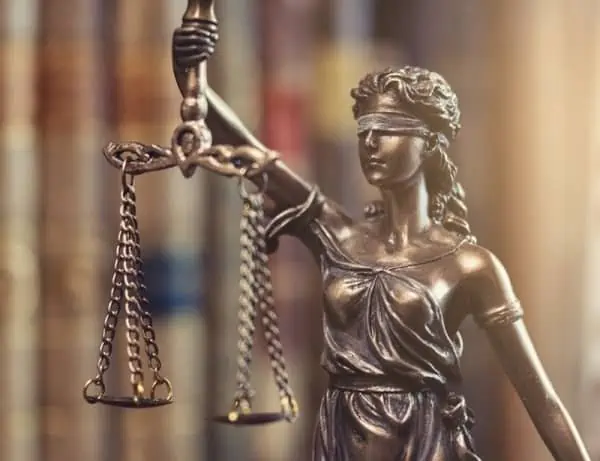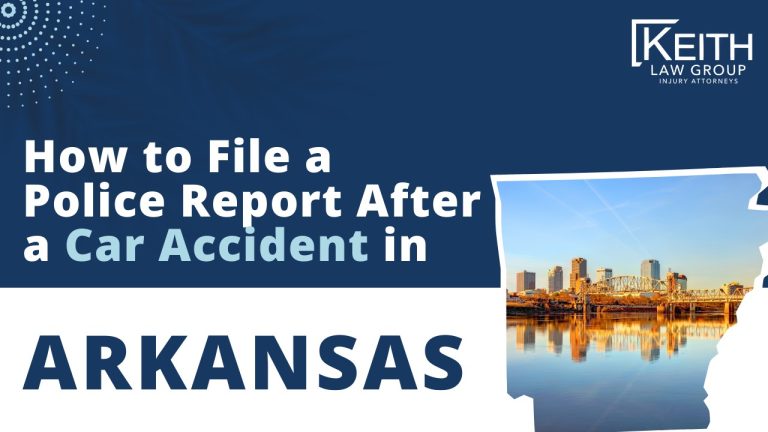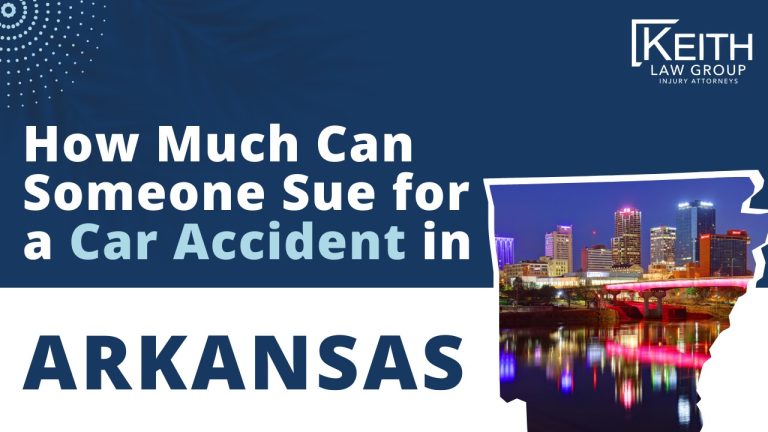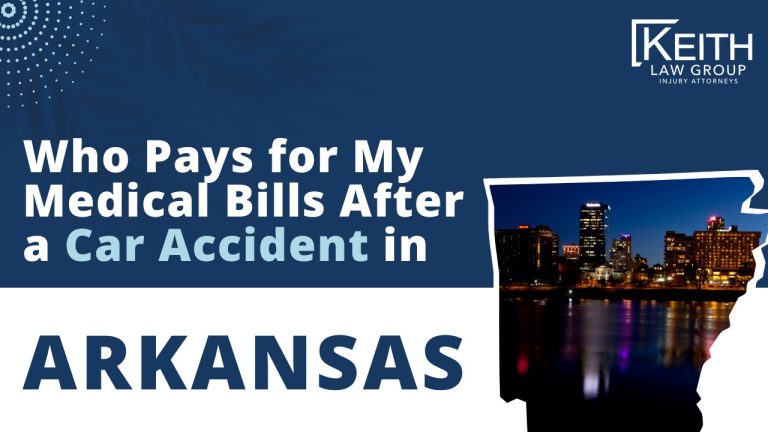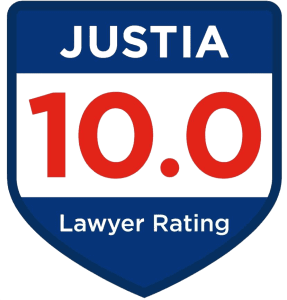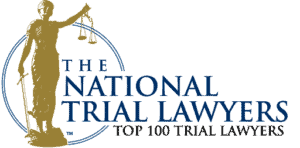- Published: June 19th, 2023
- Last Updated: July 9th, 2024

Personal Injury Lawyer for 30+ years. Nationally recognized Top 100 Trial Lawyer. Top Car Accident Lawyer & Motor Vehicle Accident Lawyer in Arkansas.
- Over $20 Million recovered in Medical Device Injury Lawsuits.
- Over $13 Million recovered in Car Accident Lawsuits and other Motor Vehicle Accident Lawsuits.
- Over $100 Million recovered in total on behalf of clients.
- Sean specializes in cases involving personal injuries, car accidents, motorcycle accidents, truck accidents, wrongful death, slip and falls, nursing home abuse cases, nursing home elopement cases, and more.
Intro to Car Accident Claims
Did you know that over 6 million car accidents occur in the United States each year?
Navigating the complex world of car accident insurance claims, including collision coverage and comprehensive coverage, can be daunting, but understanding the process is crucial for a smooth experience.
Many insurers play a vital role in settling injury and property damage claims, ensuring that both parties involved in an auto accident are compensated fairly, even in cases involving underinsured motorists.
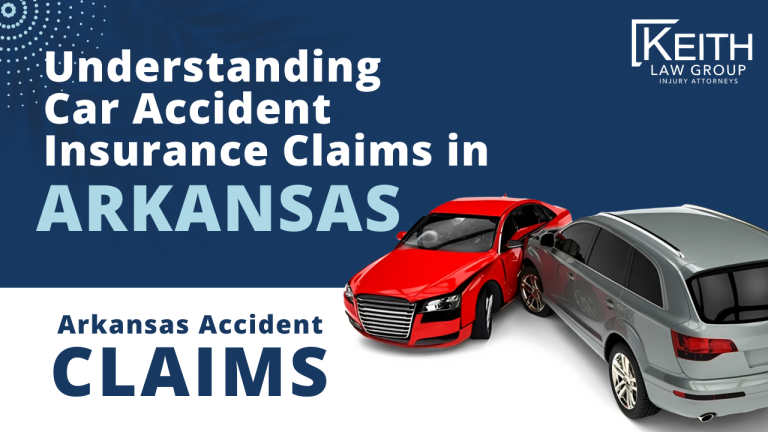
However, common challenges such as dealing with claims adjusters, understanding insurance laws, and assessing vehicle damage can make filing a claim feel overwhelming.
In this guide, we’ll break down everything you need to know about Arkansas car accident insurance claims – from filing an accident report to negotiating with your auto policy provider and understanding collision coverage.
So buckle up and let’s dive into the world of car insurance with many insurers offering comprehensive coverage for accidents!
Table of Contents
Actions at the Accident Scene and After Leaving
Documenting Accident Scene with Photos/Videos
One of the most crucial steps to take after a car accident is documenting the scene.
This can be done by:
- Taking photos of all vehicles involved in accidents, capturing any visible damage for accident report and collision insurance purposes with auto insurance
- Recording videos of the accident site, including debris, skid marks, or other relevant details for an accident report, crash investigation, and property damage claims in accidents.
- Capturing images of traffic signs and signals near the Arkansas car accident crash location for an accident report, collision insurance, and assessing car damage
- Photographing any injuries sustained by drivers or passengers
After documenting the accident scene and exchanging information with the other driver, it’s important to report a hit and run incident to the Arkansas police and your insurance company.
Having visual evidence will not only help you remember important details about the crash but it can also increase the amount of a car accident settlement, especially for property damage liability, car rental, and totaled vehicle situations.
Collecting Contact Information from Involved Parties
After ensuring everyone’s safety at the accident scene, it’s essential to collect contact information from all parties involved, including drivers, auto insurance for all parties, and collision insurance details for the accident victims from each insurance company.
Following an auto accident, you should collect the following information for all parties involved:
- Names
- Addresses
- Phone numbers
- Insurance company names and policy numbers
- License plate numbers and vehicle descriptions
Gather information from any witnesses present during the property damage liability event, such minor car accident such as a crash.
Their statements could prove vital in determining fault and supporting your insurance claim for repairs and parts.
Understanding common car accident causes can help you minimize the risk of being involved in a collision.
Seeking Medical Attention if Necessary
Following a car wreck or crash, it’s crucial to seek medical attention if you or anyone else involved has sustained serious injuries.
Even if symptoms seem minor initially, they could worsen over time or indicate more severe issues.
Contacting your auto insurance company is also essential for managing repairs and addressing property damage liability.
Keep track of all medical bills and records related to the crash for potential reimbursement through your property damage liability insurance claim with your company, ensuring you receive the money you deserve.
Dealing with Repairs and Insurance Claims
Reporting the Accident to Your Insurance Provider
Once you’ve left the crash scene and taken care of immediate concerns such as medical treatment, report the incident to your insurance company as soon as possible.
They’ll guide you through their specific claims process, inform you of any necessary steps, and let you know if there’s a need for replacement parts.
Researching Repair Shops and Aftermarket Parts
When dealing with vehicle repairs following a collision or crash in Arkansas, it’s essential to research reputable repair shops in your area that specialize in working with your car make and model.
Consider the use of aftermarket parts if they’re more cost-effective, compatible with your vehicle, and approved by your insurance company to maintain the value of your car.
Determining Fault and Claim Settlement
During the insurance claims process in Arkansas, fault determination plays a significant role in how much compensation you may receive.
In some cases, both drivers share responsibility for the crash, leading to a reduced settlement amount from other driver and the company, and affecting the value of parts involved.
By following these steps and documenting every aspect of the crash scene, aftermath, and parts involved, you’ll be better prepared to navigate car accident insurance claims successfully with the company and ensure the value of your car insurance claim amount is maximized.
Calling the Arkansas Police and Obtaining Officer Information
Legal Requirement to Report Accidents in Arkansas
In Arkansas, it’s essential to be aware of the legal requirements regarding car insurance.
One crucial step is reporting the crash to the police and your insurance company.
According to state law, you must report any accident that:
- Results in death or injury
- Causes property damage exceeding $1,000
Failing to report a crash or accident in Arkansas can lead to fines and penalties, so make sure you follow this requirement and inform your insurance company about any damaged parts.
Importance of Obtaining a Police Report
A police report plays a significant role in car crash insurance claims for several reasons, including assessing parts, car accident causes, and determining value:
- It provides an official account of the incident
- It contains crucial details about all parties involved
- It may include statements from witnesses and other evidence
- Insurance companies often rely on police reports when determining fault and settling claims in the event of a crash, ensuring company value.
Having a detailed police report can strengthen your claim with the insurance company and help ensure that you receive fair compensation for damages after a crash, reflecting the true value of your losses.
Gathering Officer’s Name, Badge Number, and Contact Details
When you call the police after a car crash in Arkansas, it’s important not just to obtain a police report for your insurance company but also gather specific information about the responding officer(s).
This includes their value:
- Name
- Badge number
- Contact information (phone number or email address)
Collecting this information can be beneficial for various reasons:
- Facilitates communication: If you need clarification or additional details about the incident later on, having direct contact with the officer can save time and provide value to your insurance company.
- Ensures accuracy: In case there are errors or discrepancies in the insurance company report, knowing who prepared it helps when requesting corrections.
- Provides credibility: Having direct contact with law enforcement and your insurance company adds weight to your claim.
Here are some tips for obtaining officer information during a car accident for your insurance company:
- Be polite and respectful when interacting with officers and insurance company representatives at the scene.
- Ask for their insurance company business card if they have one, as it usually contains their contact information.
- If they don’t have a business card, ask for their name and badge number from the insurance company and write it down in a safe place.
- Before the officer leaves the scene, double-check that you have recorded their details accurately for your insurance company.
Understanding Property Damage Liability in Arkansas
Minimum Liability Coverage Requirements
Arkansas law mandates that every driver carries a minimum amount of property damage liability insurance.
This coverage helps pay for damages to another person’s property, such as their vehicle or personal belongings, resulting from an accident you cause.
The minimum requirements for property damage liability in Arkansas are:
- $25,000 for property damage, per accident.
It’s essential to understand that these amounts are the bare minimum required by law and insurance companies.
Many drivers choose to carry higher limits to protect themselves from potential financial risks.
Determining Fault in Arkansas Accidents
Arkansas follows a “fault” system.
This means that in a car accident lawsuit, the party responsible for causing the accident is also responsible for compensating any damages incurred, typically through their insurance company.
In some cases, fault may be shared between multiple parties involved in the crash and their respective insurance companies.
To determine fault, auto insurance companies themselves will typically investigate the circumstances surrounding the accident and gather evidence such as:
- Police reports
- Witness statements
- Photos or videos of the scene
- Vehicle damage assessments
Based on this information, insurance companies will assign a percentage of fault to each party involved.
If you’re found partially at fault, your compensation may be reduced according to your percentage of responsibility by the insurance company.
Consequences for Uninsured Drivers
Driving without proper insurance coverage can lead to severe consequences in Arkansas.
If you’re caught driving without at least the minimum required property damage liability insurance, you could face penalties such as:
- Fines ranging from $50 to $250
- Suspension of your driver’s license and vehicle registration
- Impoundment of your vehicle (at your expense)
- Requirement to file an SR-22 certificate (proof of future financial responsibility) with the Department of Finance and Administration for three years through your insurance company
If you cause an accident while uninsured, you’ll be held personally liable for any property damage or injuries you cause.
This could result in significant financial burdens, as well as potential lawsuits from the injured parties and dealing with insurance companies.
Arkansas Statute of Limitations for Filing a Claim
Time Limit for Filing Claims
In Arkansas, the statute of limitations for filing car accident insurance claims varies depending on the type of auto insurance claim being filed:
- Personal Injury: 3 years from the date of the accident to file a claim with the insurance company
- Property Damage: 3 years from the date of the accident
It’s crucial to file your claim within these time frames to avoid losing your right to seek compensation.
Exceptions That May Extend the Deadline
There are some situations where exceptions may extend the deadline for filing a car accident insurance claim in Arkansas:
- Minors: If a person involved in an accident is under 18 years old, they have until their 20th birthday to file a personal injury or property damage claim.
- Mental incapacity: If someone is mentally incapacitated at the time of an accident, they have three years from when their mental capacity is restored to file a claim.
- Discovery rule: In some cases, if injuries or damages aren’t discovered until later, you may have additional time to file a claim based on when you reasonably should have discovered them.
Keep in mind that these exceptions aren’t always applicable and can vary depending on individual circumstances.
Consequences of Missing the Statute of Limitations
Failing to meet the statute of limitations can result in severe consequences:
- Loss of right to seek compensation: If you miss the deadline, you lose your legal right to pursue compensation for personal injury or property damage.
- Dismissal by small claims court: Even if you attempt to file after missing the deadline, courts typically dismiss cases that fall outside statutes of limitations.
To avoid these consequences:
- Be aware of deadlines and keep track of important dates related to your case.
- Consult with an attorney who can help ensure that you’re meeting all necessary requirements and deadlines.
Additional Information About Arkansas Insurance Claims
- Small claims court: In Arkansas, small claims court can handle cases with a maximum amount of $5,000. This option may be suitable for smaller car accident insurance claims.
- Minimum insurance requirements: Arkansas law requires drivers to carry the following minimum amounts of liability insurance:
- $25,000 per person for bodily injury;
- $50,000 per accident for bodily injury; and
- $25,000 per accident for property damage
- No-fault vs. fault states: Unlike some states that use a no-fault system for car accidents (such as Florida or Michigan), Arkansas operates under a traditional fault-based system. This means that the at-fault driver’s insurance company is responsible for covering damages.
Disputing Adjuster's Vehicle Fair Market Value and Repair Estimate in Arkansas
Reasons to Dispute
Car accident insurance claims can sometimes lead to disputes with claims adjuster over the adjuster’s valuation or repair estimate.
Common reasons for disputing an adjuster’s decision include:
- Inaccurate assessment of your vehicle’s fair market value
- Underestimation of necessary repairs
- Incorrect calculation of depreciation
- Failure to consider comparable vehicles in the area
Steps to Take
If you believe your car accident insurance claim has been unfairly assessed, follow these steps when disputing the adjuster’s decision:
- Review your policy: Understand what is covered under your insurance policy and any applicable deductibles.
- Gather documentation: Collect supporting documents, such as repair estimates from independent mechanics, receipts for any repairs already completed, and examples of similar vehicles with their market values.
- Write a letter: Draft a detailed letter outlining your concerns with the adjuster’s valuation or repair estimate, including specific discrepancies and supporting evidence.
- Contact your insurer: Send the letter to your insurance company via certified mail, keeping a copy for yourself.
- Follow up: If you don’t receive a response within two weeks, call your insurer to discuss the matter further.
Importance of Supporting Documentation
Gathering supporting documentation is crucial when disputing an adjuster’s decision on car accident insurance claims.
Here are some types of documentation that can help strengthen your case:
- Independent repair estimates: Obtain at least two repair estimates from reputable mechanics in Arkansas who are not affiliated with your insurer.
- Vehicle appraisal: Consider getting an appraisal from a professional appraiser who specializes in determining fair market value for vehicles.
- Comparable sales: Research recent sales of similar vehicles in Arkansas using online resources like Kelley Blue Book or local classifieds ads. Make sure they have similar make, model, year, mileage, and condition as your vehicle.
- Receipts: Provide receipts for any repairs already completed on your vehicle, as well as any aftermarket parts or upgrades that may increase its value.
By following these guidelines and gathering the necessary documentation, you can effectively dispute an adjuster’s decision on your car accident insurance claim in Arkansas.
Remember to stay persistent and maintain open communication with your insurer throughout the process.
First-party vs Third-party Claims: Differences and Scenarios
First-party Claims: Definition and Examples
A first-party claim is one filed by the policyholder directly with their own insurance company.
These claims typically cover damages to the policyholder insurance agent’s vehicle or personal injuries sustained in a car accident.
Some common examples of first-party claims include:
- Collision coverage: Covers damage to your vehicle when involved in an accident, regardless of fault
- Comprehensive coverage: Covers damage caused by events other than a collision, such as theft, vandalism, or natural disasters
- Personal Injury Protection (PIP) or Medical Payments (MedPay): Covers medical expenses for you and your passengers after an accident
Third-party Claims: Definition and Examples
A third-party claim is filed against another person or other driver’s insurance company when they are at fault for causing an accident.
This type of claim can cover damages to your vehicle, a personal injury claim for injuries, and property damage.
Some common examples of third-party claims include:
- Bodily injury liability: Covers medical expenses for those injured in an accident caused by the at-fault driver
- Property damage liability: Covers the cost of repairing or replacing damaged property belonging to others as a result of the at-fault driver’s actions
- Uninsured/Underinsured motorist coverage (UM/UIM): Provides protection if you’re involved in an accident with a driver who doesn’t have adequate insurance coverage
Factors Affecting Which Type of Claim to File
There are several factors that can influence whether you should file a first-party or third-party claim after a car accident:
- Fault determination: If you were at fault for the accident, you’ll likely need to file a first-party claim with your own insurer. However, if another party was responsible for the incident, filing a third-party claim against their insurer may be necessary.
- Policy service options: Your insurance policy may dictate which type of claim you can file. For example, if you only have liability coverage, you won’t be able to file a first-party claim for damages to your own vehicle.
- Policy limitations: Each insurance policy has specific coverage limits and exclusions that may affect which type of claim is appropriate. Be sure to review your policy’s terms and conditions before deciding on the right course of action.
- Time constraints: In many cases, there are strict deadlines for filing claims after an accident. Make sure you’re aware of these timeframes so you don’t miss out on potential compensation.
- Privacy concerns: Filing a third-party claim may require disclosing personal information about yourself or others involved in the accident, which could raise privacy concerns.
Conclusion of Car Accident Insurance Claims Process
In summary, the car accident insurance claims process in Arkansas involves several key steps. First, take appropriate actions at the accident scene and after leaving.
This includes exchanging insurance information with other drivers, documenting damages, and seeking medical attention if needed.
Next, call the Arkansas police to report the accident and obtain officer information for your records.
Familiarize yourself with property damage liability laws in Arkansas to ensure you understand your responsibilities and rights during the claims process.
Be aware of the statute of limitations for filing a claim in Arkansas; typically, it’s three years from the date of the accident to file claims there.
If you disagree with an adjuster’s vehicle fair market value or repair estimate, be prepared to dispute their findings by providing evidence supporting your claim.
Understand the differences between first-party and third-party claims as well as when each scenario applies.
By following these guidelines and staying informed throughout the process, you’ll be better equipped to navigate car accident insurance claims in Arkansas successfully.
Don’t hesitate to seek professional advice if needed – remember that knowledge is power.
Frequently Asked Questions
-
What is property damage liability?
Property damage liability covers any damages you cause to another person’s property (such as their vehicle) during an accident.
In Arkansas, drivers are required to carry a minimum amount of this coverage.
-
How long do I have to file a car accident insurance claim in Arkansas?
The statute of limitations for filing a car accident insurance claim in Arkansas is generally three years from the date of the car accident insurance claim itself.
However, there may be exceptions depending on specific circumstances.
-
Can I dispute an adjuster's vehicle fair market value or repair estimate?
Yes, if you disagree with an adjuster’s assessment of your vehicle’s fair market value or repair estimate, gather evidence (such as comparable sales listings or independent repair quotes) to support your claim and present it during the claims process.
-
What is the difference between a first-party and third-party claim?
A first-party claim involves filing a claim with your own insurance company, while a third-party claim is filed with the at-fault driver’s insurance company.
The type of claim you file depends on factors such as fault, insurance coverage, and state laws.
-
Should I seek legal advice if I'm unsure about my car accident insurance claim?
Yes, consulting with an experienced attorney can provide valuable guidance and help protect your interests throughout the claims process.
They can assist you in navigating complex legal issues and ensure you receive fair compensation for damages or injuries sustained in an accident.
All Posts for the Car Accident Lawsuit Legal Guide
Practice Areas
- 3M Earplug
- Belviq
- Bladder Sling
- Camp Lejeune Water Contamination
- Defective Medical Device
- Hernia Mesh
- Hip Replacement
- NEC Infant Formula
- Medtronic Insulin Pump
- Paraquat
- Philips CPAP
- Roundup
- Talcum Powder
- Tylenol Autism & ADHD
- Zantac
- Bicycle Accidents
- Boat Accidents
- Construction Accidents
- Dog Bite
- Drug Injuries
- Electric Shock Injuries
- Nursing Home Abuse
- Nursing Home Bedsore
- Nursing Home Falls
- Nursing Home Infection
- Nursing Home Sexual Abuse
- Personal Injuries
- Premises Liability
- Slip and Fall
- Traumatic Brain Injuries
- Wrongful Death
- 3M Earplug
- Belviq
- Bladder Sling
- Camp Lejeune Water Contamination
- Defective Medical Device
- Hernia Mesh
- Hip Replacement
- NEC Infant Formula
- Medtronic Insulin Pump
- Paraquat
- Philips CPAP
- Roundup
- Talcum Powder
- Tylenol Autism & ADHD
- Zantac
- Bicycle Accidents
- Boat Accidents
- Construction Accidents
- Dog Bite
- Drug Injuries
- Electric Shock Injuries
- Nursing Home Abuse
- Nursing Home Bedsore
- Nursing Home Falls
- Nursing Home Infection
- Nursing Home Sexual Abuse
- Personal Injuries
- Premises Liability
- Slip and Fall
- Traumatic Brain Injuries
- Wrongful Death
You pay
Nothing
unless we win
Do You Have A Case?
Recent Legal Posts & Articles
Recent Legal Guides

Choose Us For Your Personal Injury Case
- Available 24/7
- No Upfront Fees
- Free Case Evaluation
- No Fees Unless We Win!

